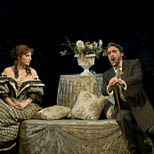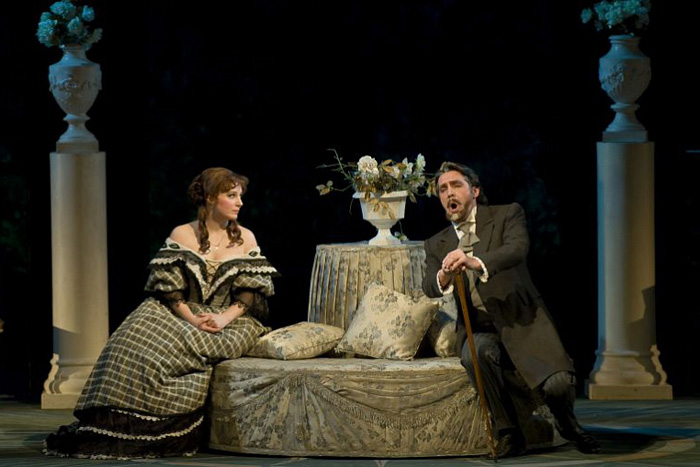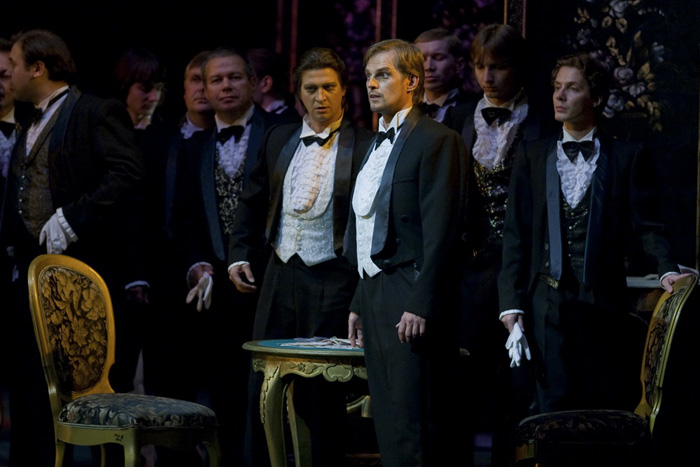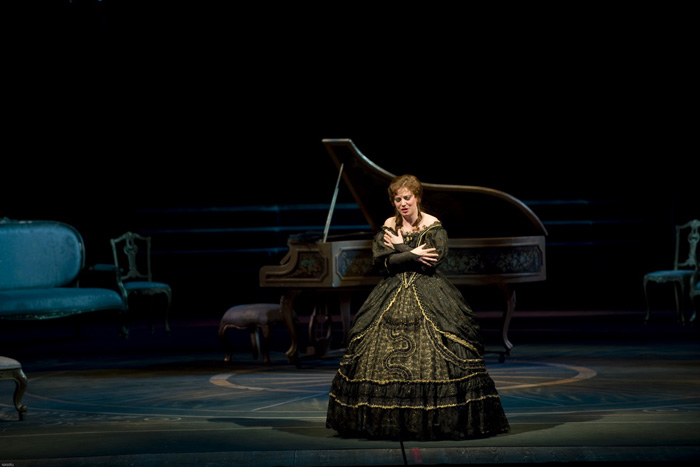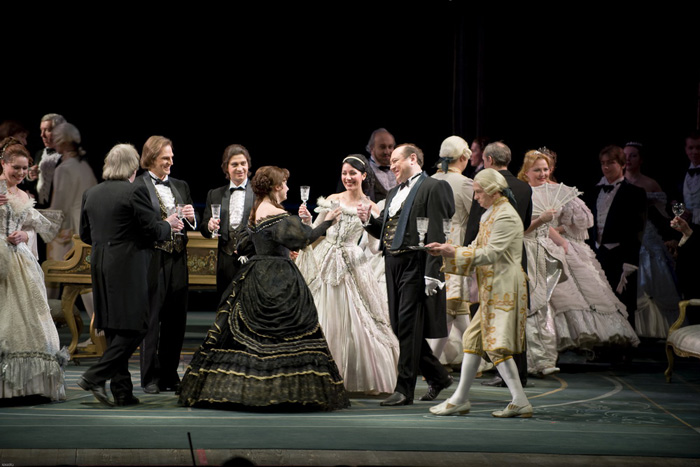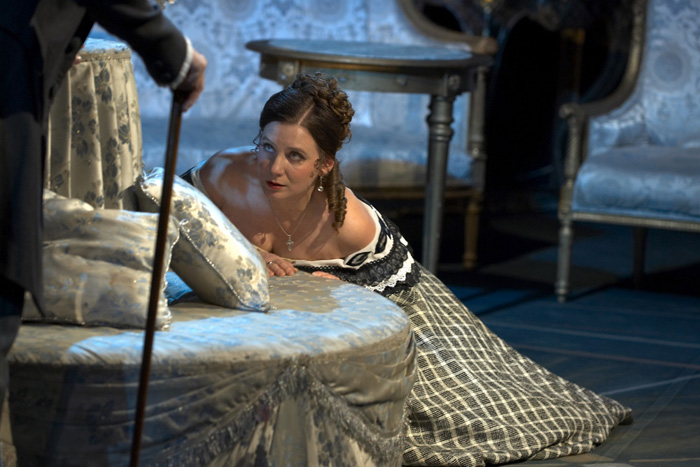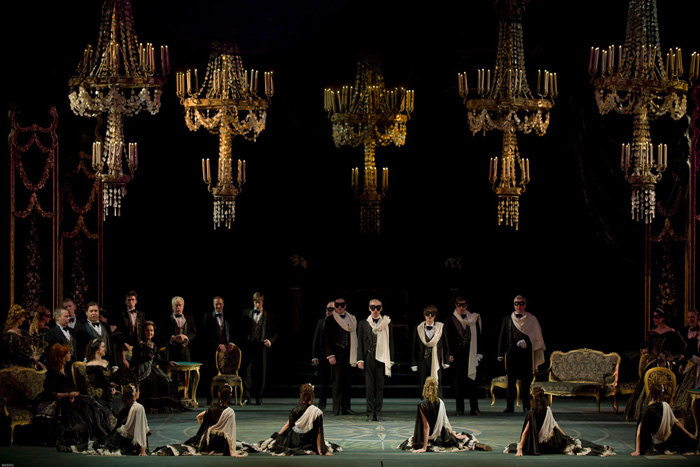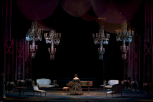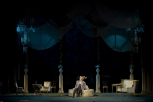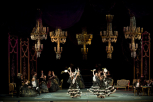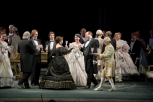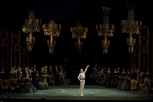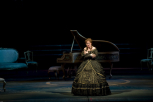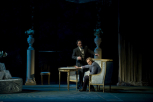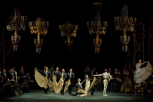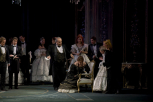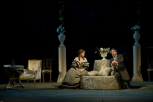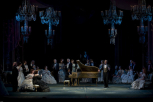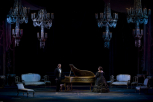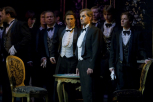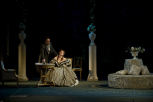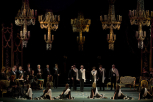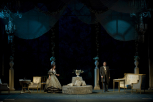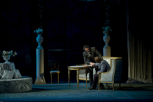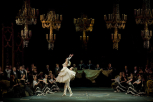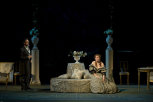La traviata (Mikhailovsky Theatre, opera) - 05 January 2025 at 13:00
Genre: Opera | Language: Italian | Age restriction: 12+ | Length: 2 hours 30 minutes | Intermissions: 1 | Opening night: 24 February 1995
Featured in: Mikhailovsky (ex. Mussorgsky) Theatre January 2025 | Opera in St.Petersburg in January 2025 | Opera in Mikhailovsky (ex. Mussorgsky) Theatre in January 2025
Credits
Libretto: Francesco Maria Piave, after Alexandre Dumas fils’s play La Dame aux camelliasProduction: Stanislav Gaudasinsky
Set and Costume Design: Vyacheslav Okunev
Choreography: Stanislav Gaudasinsky, Evgeny Myasishchev
Artists
Conductor — Alexey NyagaPremiere of the production at the Mikhailovsky Theatre: February 24, 1995
The most lyrical Verdi’s work is La traviata, based on the novel by Alexandre Dumas, fils The Lady of the Camellias. The title La traviata means literally The Fallen Woman, or perhaps more figuratively, The Woman Who Goes Astray.
The title character of the play is Marguerite Gautier, who is based on Marie Duplessis, the real-life lover of author Dumas, fils. Duplessis was both a popular courtesan and the hostess of a salon, where politicians, writers, and artists gathered for socializing. Alexandre Dumas, père allegedly insisted on his son splitting up with Duplessis: and when he returned to Paris, she had already died of consumption.
Since its debut as a play, numerous editions have been performed at theatres around the world. Giuseppe Verdi attended the Paris première of the play and soon turned to composing the opera. When Dumas, fils heard La traviata, he said: “Nobody would have remembered my Lady of the Camellias in 50 years but for Verdi, who made it immortal”.The production of the Mikhailovsky Theatre is one of the most elegant treatments of the opera.
Act I
Scene 1
Violetta Valery, a courtesan, throws a lavish party at her salon to celebrate her recovery from an illness. A guest of hers, Alfredo Germont falls in love with Violetta at first sight. On guests’ request Alfredo gives a toast — a drinking song. From the next room, the orchestra begins to play and the guests move there to dance waltz. Violetta feels dizzy and Alfredo stays with her. He convinces to change her lifestyle and declares his love for her.
At first Violetta rejects him with jokes but at the end when Alfredo is about to leave, she gives him a flower and promises a date. As the guests leave, Violetta recollects Alfredo’s declarations: she’s fallen in love for the first time in her life.
Scene 2
Alfredo and Violetta live together in a country house outside Paris. They are happy in the peaceful countryside. Annina, the maid, interrupts Alfredo’s dreaming announcing that Violetta sells everything she owns to support their country life. Alfredo is shocked to learn this and leaves for Paris immediately to settle matters himself.
Violetta is looking through the letters: she has received an invitation from her friend, Flora, inviting her to a ball in Paris. Violetta indifferently lays it aside.
Alfredo’s father, Giorgio Germont, arrives. He accuses Violetta of destroying his son’s life and reputation. Violetta is desperate: her love to Alfredo is her only happiness. Her life is very short, she’s death-sick. She finally agrees to leave Alfredo. Violetta writes a farewell letter to Alfredo. Alfredo returns to find weeping Violetta, and after her leaving he finds the letter. Giorgio asks his son to come back to his family in Provence, but Alfredo wouldn’t listen: he’s noticed Flora’s invitation to the ball. Now he’s sure that Violetta has left him forever. Jealous Alfredo rushes to Paris.
Act II
Scene 3
A party at Flora’s house. Alfredo is playing cards among other guests. Violetta arrives with Baron Douphol. Flora is happy to see her but Violetta feels terrible at the ball: she’s concerned about Alfredo. He picks a quarrel with Baron. Violetta is worried; she tries to prevent a duel. But Alfredo humiliates Violetta in front of the guests and then throws his money at her for her ‘services’ while they lived together.
Scene 4
Violetta whose tuberculosis has worsened is fading. She has been left by all the friends. Dr. Grenville is trying to encourage her but Violetta knows she’s going to die. She asks the maid to distribute the money to the poor and stays alone to read Giorgio Germont’s letter: he announces the soon arrival of Alfredo. Now Alfredo knows everything: Giorgio has told him about Violetta’s sacrifice.
Annina rushes in the room to tell Violetta of the arrival of Alfredo. The lovers are reunited. Alfredo suggests that they leave Paris and start a new life together. But it is too late; Violetta knows her time is up though she doesn’t want to die at the moment. The old Germont understands that his consent to their marriage is belated to save Violetta. Violetta dashes to Alfredo and dies in his arms.
video
Mikhailovsky (ex. Mussorgsky) Theatre playbill
book tickets now!
Price: 113.09 - 226.17 USD
book now- We have less than 20 of 890 tickets left!
